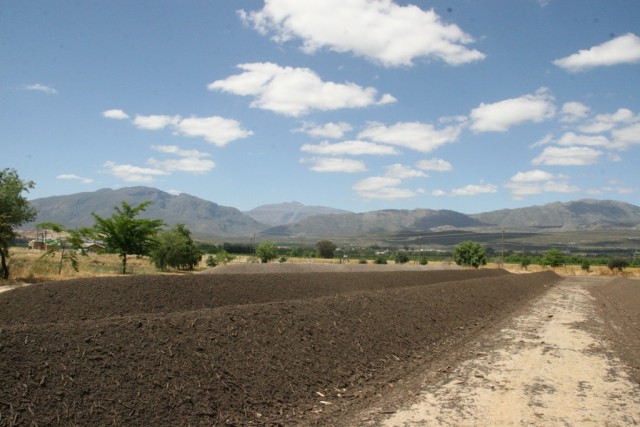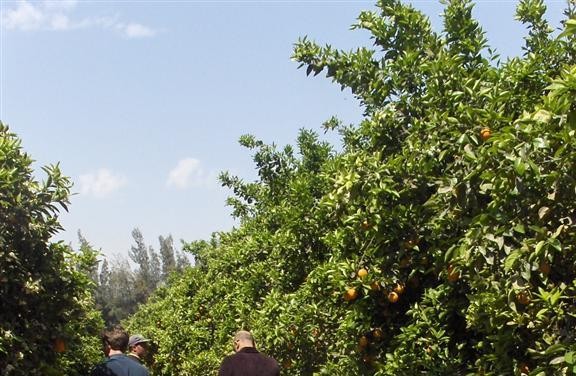CO2-sequestration
There is convincing evidence that organic agriculture manages to keep more carbon stored in the soil. Of course, striving for a high percentage of organic matter in the soil is the basic premisse of organic agriculture, and the reason why it is called "organic." This lowers the amount of CO2 in the atmoshpere.
Water holding capacity
International studies in the USA and Germany have shown conclusively that organic soils have a better water holding capacity. This manifests itself in dry years, when organic soils give better yields than conventional soils. Conversely, when the water levels are high, organic soils offer much better protection against erosion and flooding.
Soils are the key to the climate solution
Recently the EU published the report "Soil - the hidden part of the climate cycle". The report shows that soils are by far the largest carbon stores on our planet that we can actually manage. Our soils are sequestring more carbon than the atmospere and all life forms together. And we can increase the amount of carbon that is stored in the soil, by turning to organic agriculture.
Greenhouse gasses
Greenhouse gasses are gassed that tend to heat up the atmosphere, because they absorb infrared radiation. The main greenhouse gasses are CO2 (carbon dioxide), CH4 (methane), and N2O (nitrous oxide, laughing gas). The greenhouse effect of methane is 4 times as strong as carbon dioxide, while nitrous oxide is 300 times as strong. Emission of nitrous oxide is mainly caused by production and use of artificial fertilizers, but also by the use of normal manure and by ploughing grassland.
Scientific references
Here are some publications that shed a light on the importance of soil and its relation to climate.
FAO infograph explaining the link between Soil and Climate
Soils help to combat and adapt to climate change.
Greenhouse Gas Mitigation in Agriculture - Berkeley
Organic amendments, particularly compost, can enhance biomass and sequester carbon on grasslands while reducing emissions from the waste sector.
Regenerative Organic Agriculture And Climate Change - Rodale Institute
Recent data from farming systems and pasture trials around the globe show that “regenerative organic agriculture” can reverse the greenhouse effect
European Atlas of Soil Biodiversity - by EC/JRC (intro)
Soil contains at least one quarter to one third of all living organisms on the planet. Biodiversity loss and climate change are two of the most pressing challenges of or time. Soil biodiversity is part of the solution to both. Full PDF at http://eusoils.jrc.ec.europa.eu/library/maps/biodiversity_atlas/
Enhanced top soil carbon stocks under organic farming
This scientific report proves that organic farming improves carbon content of soil. Research funded by the FAO.
Carbon sequestration potential of reclaimed desert in Egypt
This report shows how even desert can be transformed to fertile soil, with the use of compost and agro-ecological farming techniques. By Dutch-based Louis Bolk Institute and Soil & More.
Organic Agriculture and Climate Change Mitigation
This FAO report discusses the great potential of organic agriculture for Climate Change Mitigation.
Soil, the hidden part of climate cycle; European Commission
This report gives a very concise and clear overview of the enormous impact of soil on the climate cycle. "A release of just 0,1% of the carbon now contained in European soils would be equal to the annual emissions of 100 million cars."
The Farming Systems Trial; Celebrating 30 years, Rodale Institute
This report from the Rodale institute shows how 30 years of research demonstrate the positive effects of agro-ecological farming on climate change mitigation, energy use and farm resilience.





